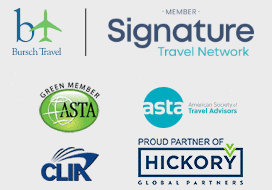Bursch Travel – “Top Workplace” 2024 Winner
Waite Park, Minnesota June 07, 2024 Bursch Travel has been awarded a Top Workplaces 2024 honor by The Star Tribune Top Workplaces. This list is based solely on employee feedback gathered through a third- party survey administered by employee engagement technology partner Energage, LLC. The confidential survey uniquely measures the employee experience and its component … Read more
